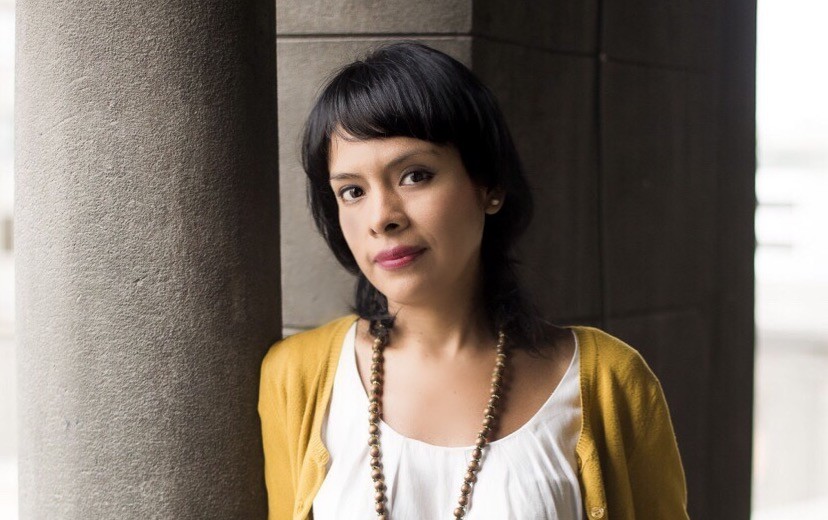Advice: Investigate Corporate Power, Environment and Algorithms
Interview with the Peruvian journalist Nelly Luna Amancio, co-founder of Ojo Publico
Nelly Luna Amancio is the co-founder and editor of Ojo Publico, an independent, non-profit Peruvian newsroom known internationally for its award-winning investigative journalism. She is an investigative journalist specializing in data analysis. Her coverage focuses on socio-environmental issues and corporate power.
As a member of Ojo-Publico, she received the 2015 National Human Rights Award and the Data Journalism Awards’ Best Research of the Year Award. Ms Luna Amancio is a part of the International Consortium of Investigative Journalists (ICIJ), a network of journalists that broke two cross-border investigations, the Panama Papers and the Paradise Papers.
Prior to Ojo-Público, Ms Luna Amancio worked with Peru’s El Comercio newspaper. Today Ms Luna Amancio leads a team of programmers, mathematicians and statisticians who work on developing an algorithm to identify high-risk corruption patterns in Peru. She also coordinates a cross-border research project investigating timber trafficking in the Amazon.
Q: How did you become interested in investigative journalism?
Nelly Luna Amancio: I started my journalistic career by covering local day to day news for the Peru’s most important newspaper, I improved my instinct (the one that many define as the journalistic nose), and I soon learned to recognize the most relevant facts, and above all, to cultivate my sources.
I soon understood, though, that the daily news did not really explain what the reason was behind everything. If most of the public parks were not well taken care of, it was because someone was stealing the money; if a publicly funded project took too long to be delivered, it was because someone else benefited from the overcharges; if there were indigenous communities affected by pollution, it was because someone was ignoring environmental standards with impunity and through that increasing their profits; if there was a conflict over water, it was because someone else was taking it.
Behind all the issues, from the most common to the most serious, there is a complex system often linked with corruption and bad corporate practices. If something does not work, it is not only because of the inefficiency of the authorities, but because there is someone else who is taking advantage.
My desire to discover and reveal the mechanism behind these things led me to investigative journalism and to that permanent search for the system governing the power relationships at both public and private level.
Q: What do you think is the biggest hidden or ignored problem in the media right now? What should we uncover, and cover as journalists, about our own field?
Nelly Luna Amancio: I think one of the biggest problems in the media – especially in large media outlets – is the small amount of investigation done into corporate power, which in many cases are their owners or funders.
The second topic to investigate, which is close to the first, is the impact that the current consumer system has on the sustainability of the planet. This has long ceased to be just an environmental issue; it has to do with an economic structure that promotes consumption, even when its impact on the world has already led to displacement and impoverishment of thousands of people.
A third topic that we should start paying much more attention to is how algorithms and usage of our personal data – in the hands of the private sector – are shaping our relations and impacting our democracies. The situation of Facebook and Cambridge Analytica is one case, but many more will follow.
Q: What are some positive developments in our field, journalism and the media in general? Who — individuals, organizations, or movements — is making a difference right now?
Nelly Luna Amancio: The technology has given independent media devoted to investigative journalism an opportunity to appear. It allows us to instantly access global and abundant information, to organize it and to understand the most sophisticated patterns of global corruption, organized crime and bad corporate practices.
At the same time, it allows us to incorporate digital tools from other disciplines into our investigative methods and strengthen virtual collaboration with many other journalistic teams anywhere in the world.
For example, I really like what we have done so far with the International Consortium of Investigative Journalists (ICIJ), in promoting collaborative journalism in the world in cases such as the Panama Papers and the Paradise Papers. Another advantage that we, as investigative reporters, have now is that we have the opportunity to know our audiences like never before.
Q: What would you ask yourself, should you be conducting this interview — and what would you answer?
Nelly Luna Amancio: I would ask myself the million-dollar question of our days: how to make investigative journalism sustainable? And my answer would probably be: continue to experiment betting on our audience loyalty. We need fans, not just readers, to bet on this kind of journalism.
Photo: Nelly Luna Amancio personal collection
Read the interview in Spanish: Nelly Luna Amancio: Hay que investigar al poder corporativo, al medio ambiente y el uso de algoritmos

